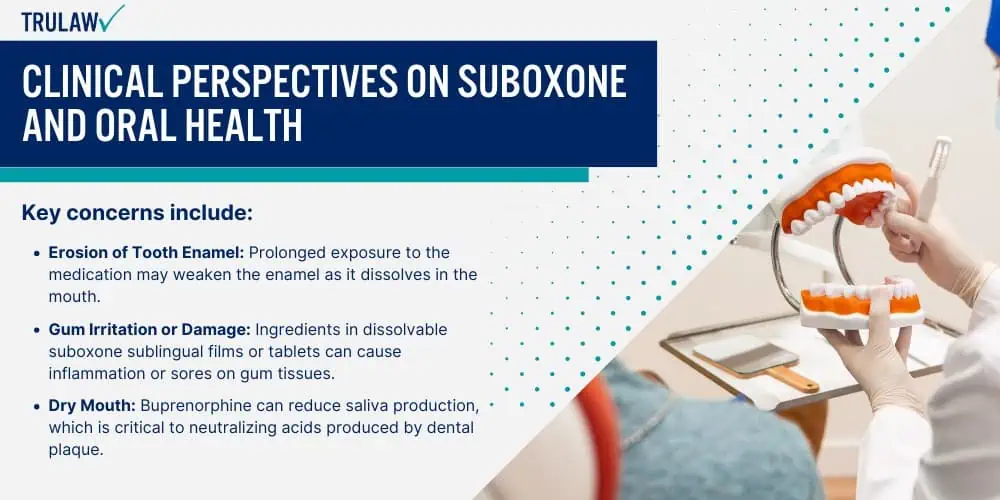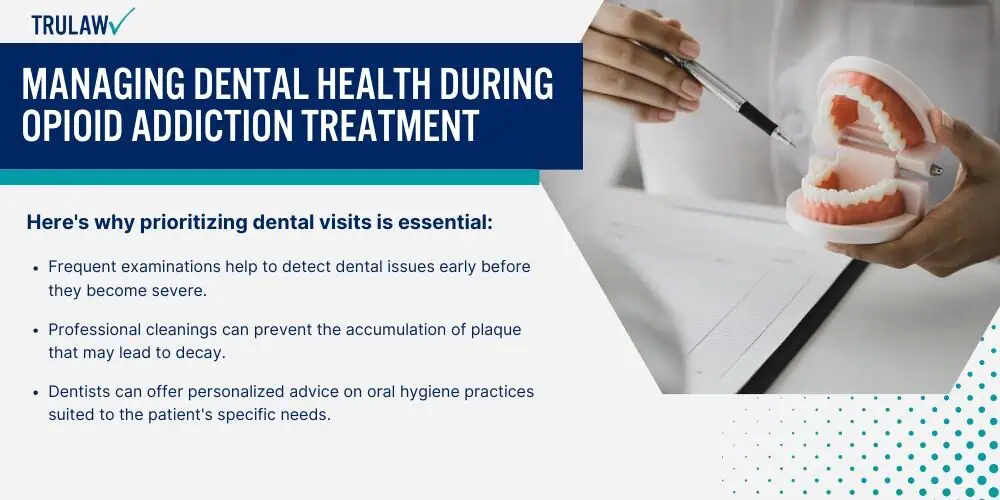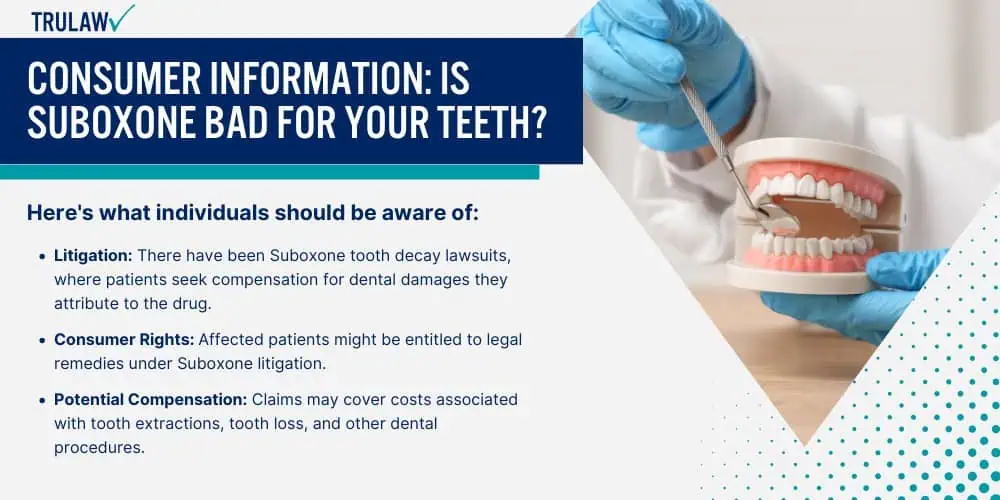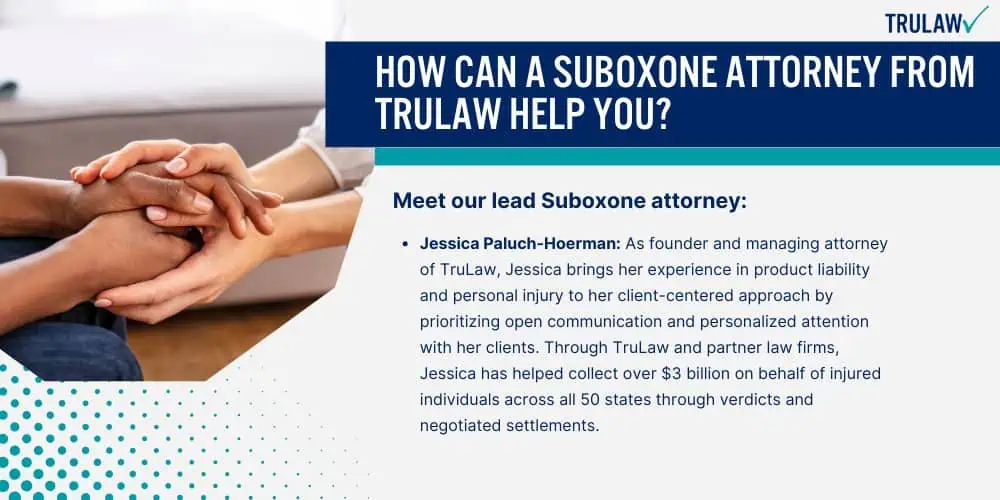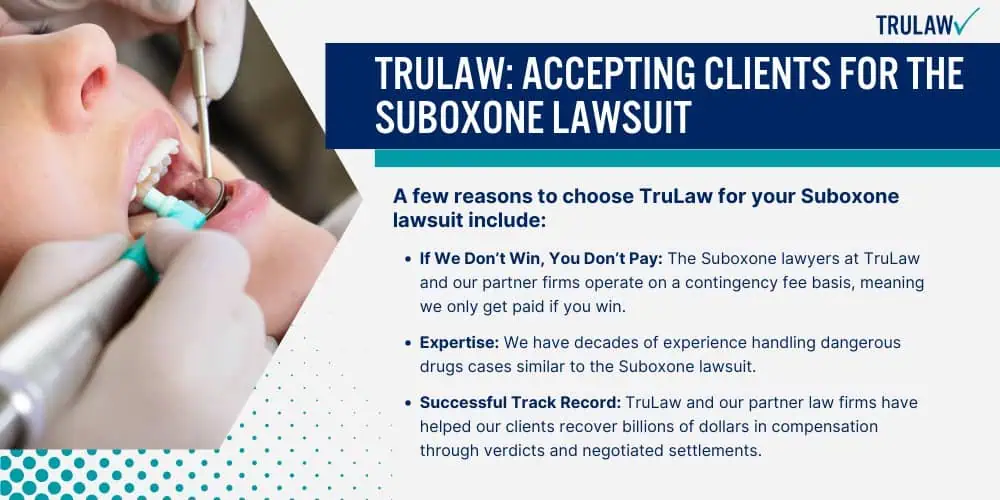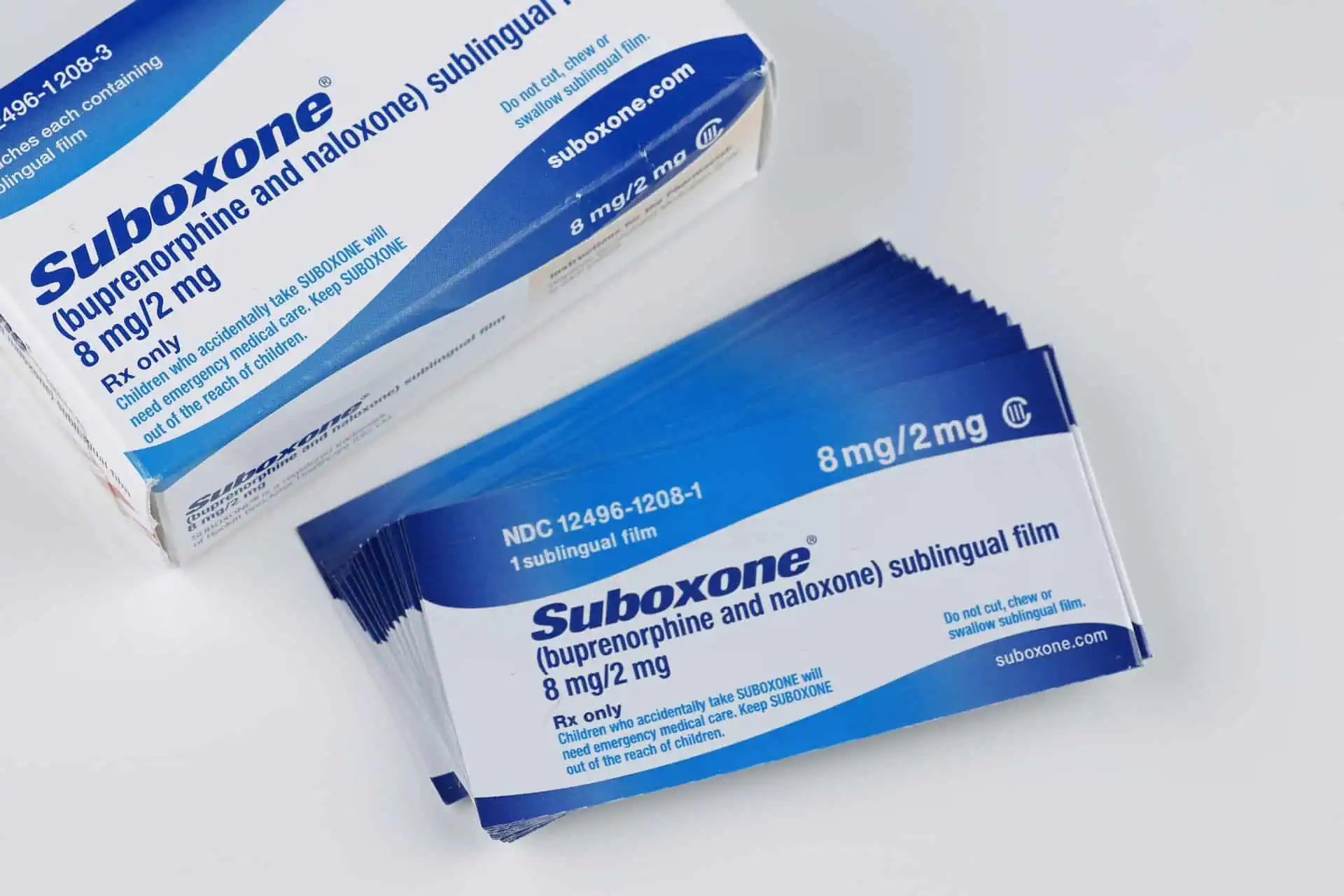Prescription medication Suboxone, commonly used to treat opioid addiction, has been linked to several dental health issues.
Patients utilizing Suboxone, particularly those dissolving the medication in their mouths, need to be aware of potential oral health risks.
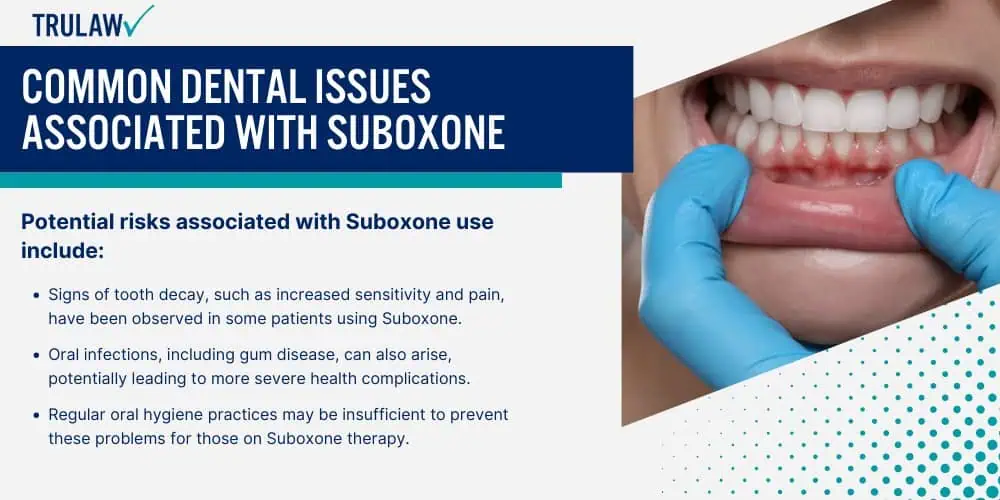
Tooth Decay and Oral Infections
Reports have surfaced connecting Suboxone to cases of tooth decay and oral infections.
These conditions can result from extended exposure to the medication when dissolved in the oral cavity.
Potential risks associated with Suboxone use include:
- Signs of tooth decay, such as increased sensitivity and pain, have been observed in some patients using Suboxone.
- Oral infections, including gum disease, can also arise, potentially leading to more severe health complications.
- Regular oral hygiene practices may be insufficient to prevent these problems for those on Suboxone therapy.
- Dental check-ups are critical for detecting and addressing any such issues early.
Suboxone Tooth Decay Lawsuit and Adverse Events
Suboxone-related dental problems have led to suboxone lawsuits and the recording of adverse events.
It is crucial for patients to understand their legal rights and for healthcare providers to report any issues encountered.
Here’s what you need to know:
- Some patients have filed suboxone product liability lawsuits due to severe dental problems caused by Suboxone.
- Severe dental adverse events, including tooth loss and the need for dental surgery, have been associated with Suboxone.
- There is an obligation to report these events to proper health authorities to ensure accurate tracking.
- Healthcare professionals must provide informed consent regarding the risks of dental problems when prescribing Suboxone.

